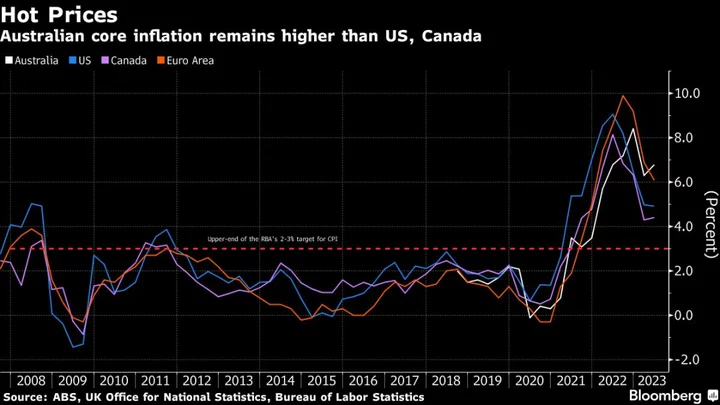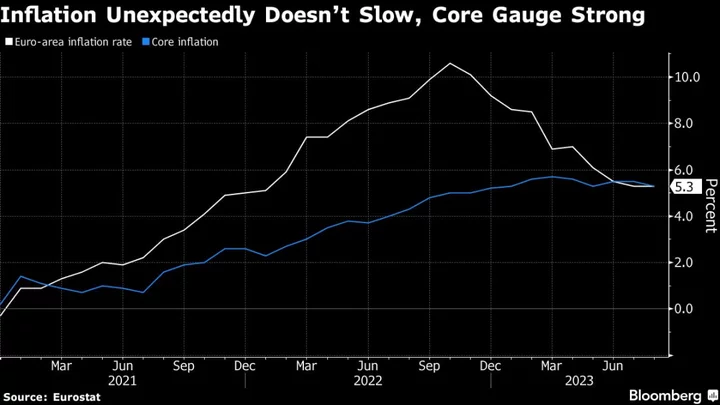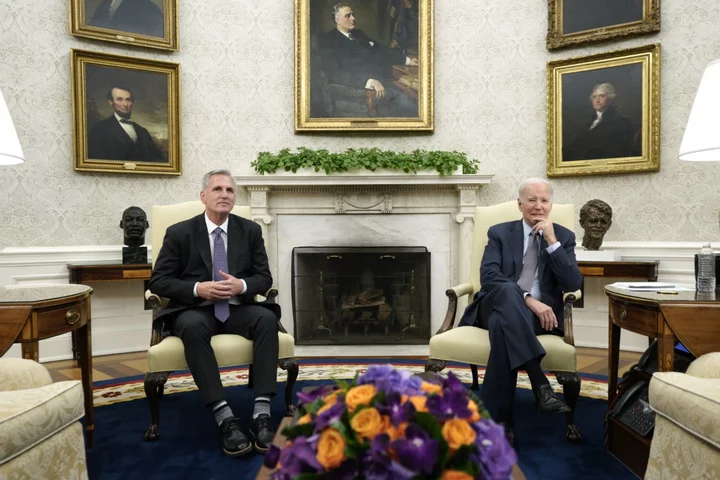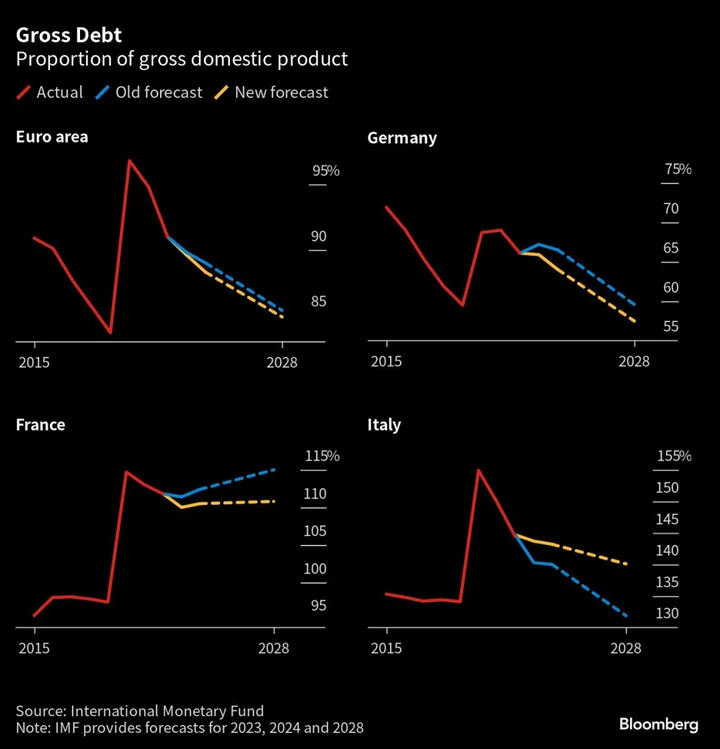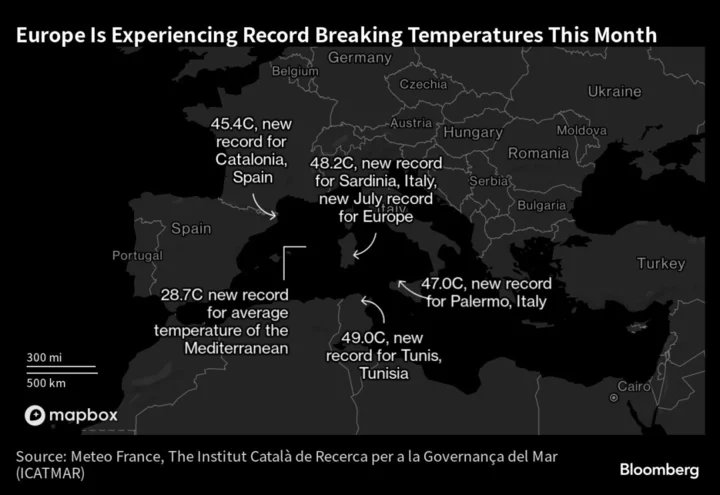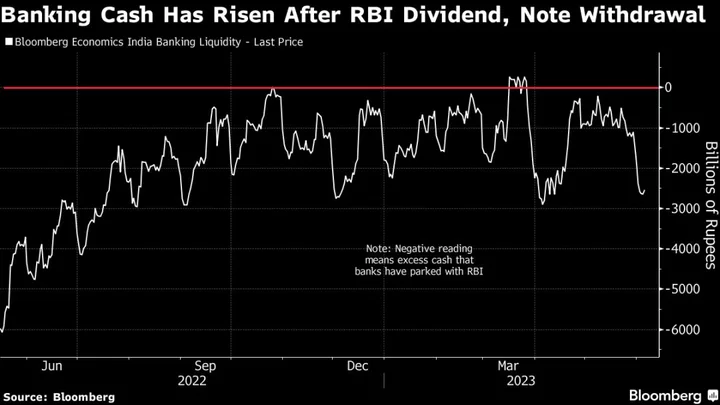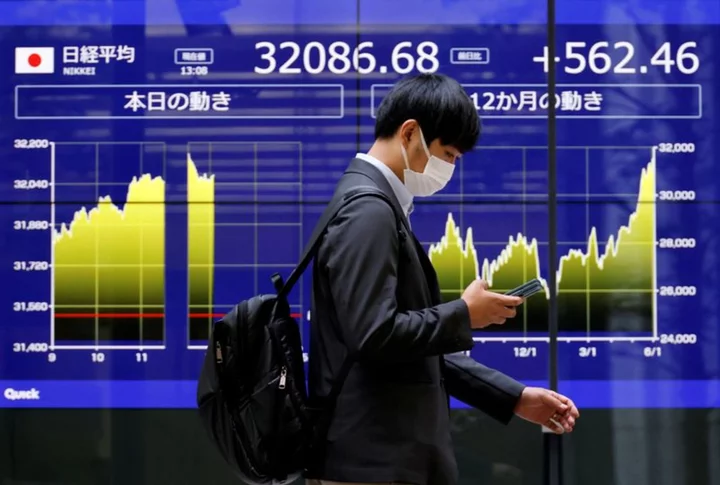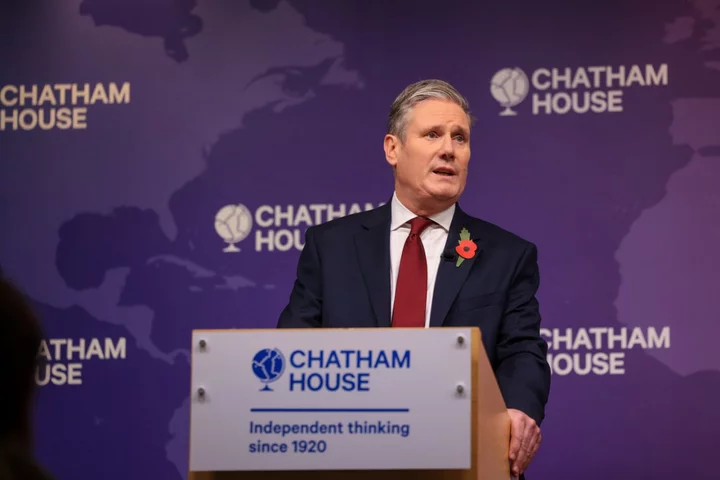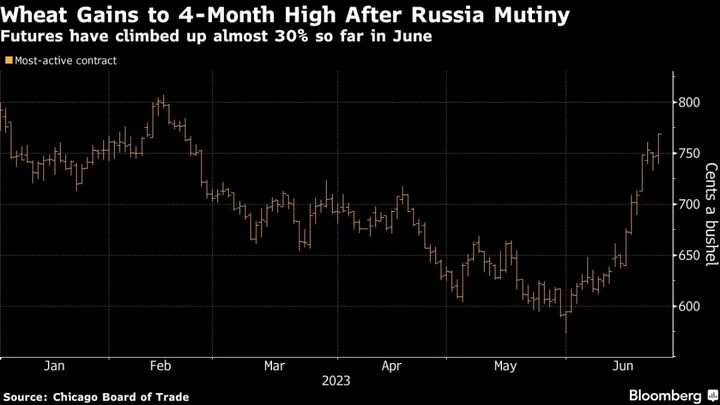Australia’s central bank unexpectedly raised its key interest rate and kept the door open to further hikes, fretting that policy needs to be tighter in order to be confident that inflation will return to target in mid-2025.
The Reserve Bank raised its cash rate by a quarter-percentage point to 4.1%, the highest level since April 2012, bringing its cumulative tightening to 4 percentage points since May last year. Only 10 of 30 economists predicted the rate rise while money markets saw about a one-in-three chance of a hike.
“The decision to hike was clearly driven by upside risks to inflation,” said Andrew Boak, chief economist for Australia at Goldman Sachs Group Inc., who predicted the outcome and sees one more hike in July for a peak rate of 4.35%. “That said, there is significant uncertainty around of the path for rates in Australia given the evolving inflation outlook.”
Market expectations that the RBA’s tightening cycle has further to run spurred gains in the currency and government bond yields. The Australian dollar was still trading higher at 66.66 US cents at 3:41 pm local time.
The central bank’s back-to-back hikes reflect accelerating services inflation, a tight labor market and a turnaround in house prices. Governor Philip Lowe says RBA decisions are now driven by data — which has proved volatile — and the key issue is consumer prices running at around 7%, versus a 2-3% target.
Lowe, in his statement, omitted a comment in May that “medium-term inflation expectations remain well anchored,” suggesting heightened concern about the strength of price pressures both at home and abroad.
“The board remains alert to the risk that expectations of ongoing high inflation contribute to larger increases in both prices and wages, especially given the limited spare capacity in the economy and the still very low rate of unemployment,” Lowe said in his statement.
Australia’s industrial relations umpire on Friday raised the national minimum wage by 5.75%, effective July 1, for about one-in-five workers. That prompted some economists to revise up their peak rate forecasts — with Deutsche Bank AG now seeing 4.6% in September.
Treasurer Jim Chalmers, speaking after the decision, rejected the notion that lower-paid workers should rein in their wage demands.
“Ordinary working people are already bearing the brunt of these interest rate rises,” he told reporters in Canberra. “They shouldn’t be bearing the blame as well. We want to see strong, sustainable, responsible wages growth in the economy. We want to see a more productive economy.”
Compared with global counterparts, the RBA has taken a slower and more cautious policy approach, worried about very high levels of household debt and how far it can push up borrowing costs. In contrast, Asia-Pacific peers like New Zealand have gone harder earlier and are now signaling their tightening cycle is concluded.
Elsewhere, Bank of Canada policy makers are also mulling a rate rise ahead of next week’s Federal Reserve meeting, when the US central bank is expected to pause its aggressive tightening campaign.
Lowe will have an opportunity to further flesh out the RBA’s thinking and its outlook for the economy in a speech Wednesday at 9:20 a.m. Sydney time.
What Bloomberg Economics Says...
“The RBA has taken more action to anchor inflation expectations. But the latest interest rate hike — unneeded in our view — ratchets up the risk of the economy running aground.”
— James McIntyre, economist
For full note, click here
Tuesday’s surprise hike came a day before data is expected to show Australia’s A$2.3 trillion ($1.5 trillion) economy grew at its weakest quarterly pace since the three months through September 2021, suggesting the RBA’s tightening over the past year is slowing activity.
Still, underlying strength remains, bolstered by substantial savings built up during the pandemic and very low unemployment. A recovery in the property market is also likely to see home owners feeling wealthier and more inclined to spend.
Eliza Owen, head of research at property consultancy CoreLogic Inc., reckons today’s rate rise “may take some steam out of the housing market.”
The RBA doesn’t expect a recession Down Under and Lowe reiterated that the path remains “narrow” to cooling inflation while preserving employment gains.
“Some further tightening of monetary policy may be required to ensure that inflation returns to target in a reasonable timeframe,” Lowe said Tuesday. “But that will depend upon how the economy and inflation evolve.”
--With assistance from Tomoko Sato.
(Adds market reaction, comments from economists.)

